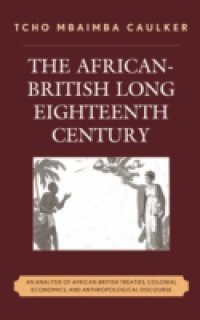Tracing the development of British colonial administration in West Africa over the course of the long eighteenth century, Caulker illuminates the solidification of the administration as it goes through a learning process of power. This book analyzes the documents and treaties that the indigenous peoples of eighteen-century Sierra Leone made with their future British colonizers, and compares them with the writings of Adam Smith to uncover a colonial philosophy linking European economic success with the process of civilizing Africa through moral education. A discussion of other archival materials demonstrates the ways that an emerging anthropological science and pseudo-scientific methodology contributed to colonial ventures and exploration. The book concludes with an analysis of the postcolonial novel The Last Harmattan of Alusine Dunbar, demonstrating that the study of this long eighteenth-century archive has as much to do with the present postcolonial era as it does with the period of African colonization.

